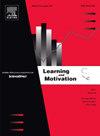利用生成式人工智能:通过强化理论探索其对认知参与、情感参与、学习保留、奖励敏感性和动机的影响
IF 1.7
4区 心理学
Q3 PSYCHOLOGY, BIOLOGICAL
引用次数: 0
摘要
随着人工智能快速融入教育环境,了解其对学生学习和参与的影响变得越来越重要。本研究通过强化理论考察了生成式人工智能对学生认知参与、情感参与、学习保留、奖励敏感性和动机参与的影响。来自华北地区7所高校的487名本科生参与了本研究。本研究采用SPSS和AMOS进行描述性统计、相关分析、回归分析和结构方程建模(SEM),探讨生成式人工智能与学生成绩之间的复杂关系。研究结果显示,生成式人工智能与所有测量的学生成绩之间存在显著的正相关关系。具体而言,认知投入的62 %、情感投入的66 %、学习保留的46 %、奖励敏感性的50 %和动机的72 %的差异归因于人工智能驱动的学习工具的影响。这些结果强调了人工智能在增强认知处理、培养与学习材料的情感联系、通过个性化学习提高记忆力以及加强基于奖励的动机方面的作用。该研究进一步证实,学生对生成式人工智能的参与是他们学习成果的一个强有力的预测指标。与人工智能生成内容的频繁互动增强了认知理解、情感投入和适应性学习行为,强化了内在和外在动机。研究结果强调了高等教育中人工智能辅助学习环境的变革潜力,为寻求优化人工智能在学术环境中的整合的教育工作者、政策制定者和技术开发人员提供了有价值的启示。本文章由计算机程序翻译,如有差异,请以英文原文为准。
Harnessing generative AI: Exploring its impact on cognitive engagement, emotional engagement, learning retention, reward sensitivity, and motivation through reinforcement theory
With the rapid integration of artificial intelligence into educational environments, understanding its influence on student learning and engagement has become increasingly critical. This study examines the impact of generative AI on students’ cognitive engagement, emotional engagement, learning retention, reward sensitivity, and motivational engagement through the lens of Reinforcement Theory. A total of 487 undergraduate students from seven universities in North China participated in the study. The study employed SPSS and AMOS for descriptive statistics, correlation analysis, regression analysis, and structural equation modeling (SEM) to explore the complex relationships between generative AI and student outcomes. The findings revealed a significant positive relationship between generative AI and all measured student outcomes. Specifically, 62 % of the variance in cognitive engagement, 66 % in emotional engagement, 46 % in learning retention, 50 % in reward sensitivity, and 72 % in motivation were attributed to the influence of AI-driven learning tools. These results highlight the role of AI in enhancing cognitive processing, fostering emotional connections with learning materials, improving retention through personalized learning, and strengthening reward-based motivation. The study further confirms that students’ engagement with generative AI is a strong predictor of their learning outcomes. Frequent interaction with AI-generated content enhances cognitive comprehension, emotional investment, and adaptive learning behaviors, reinforcing intrinsic and extrinsic motivation. The findings underscore the transformative potential of AI-assisted learning environments in higher education, offering valuable implications for educators, policymakers, and technology developers seeking to optimize AI integration in academic settings.
求助全文
通过发布文献求助,成功后即可免费获取论文全文。
去求助
来源期刊

Learning and Motivation
Multiple-
CiteScore
2.90
自引率
0.00%
发文量
53
期刊介绍:
Learning and Motivation features original experimental research devoted to the analysis of basic phenomena and mechanisms of learning, memory, and motivation. These studies, involving either animal or human subjects, examine behavioral, biological, and evolutionary influences on the learning and motivation processes, and often report on an integrated series of experiments that advance knowledge in this field. Theoretical papers and shorter reports are also considered.
 求助内容:
求助内容: 应助结果提醒方式:
应助结果提醒方式:


